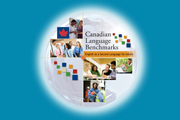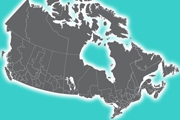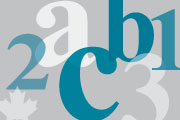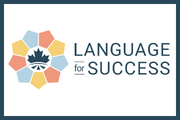For Volunteers Working with Refugees
A Refugee’s Resettlement Journey to Canada
Immigration, Refugees and Citizenship Canada – IRCC produced a video to provide refugees resettling to Canada with an overview of what to expect, including services and supports that will be provided to help them get settled in Canada.
It has been translated into the following languages:
- English: https://youtu.be/u6ng9lTwIGQ
- French: https://youtu.be/UVDuL7IMntM
- Arabic: https://youtu.be/HNQv_YiblSg
- Farsi: https://youtu.be/7vVi2p5nDNI
- Somali: https://youtu.be/gj8GE1bf8Rc
- Swahili: https://youtu.be/AA2403hnwek
- Tigrinya: https://youtu.be/HYF8v1PSfbs
For more information on the services available to refugees, you can visit www.canada.ca/refugies-services.
Your first two weeks in Canada!
Find more videos from IRCC here.
Canadian Language Benchmarks (CLB)
The CLB are national standards of English as a second language for adult immigrants. They are not a test nor a curriculum, but many tools and resources have been developed around them.
There are 12 benchmarks divided into three stages for four skills: listening, speaking, reading and writing. They describe what a learner can do at each of the benchmarks, for example, a learner at CLB 1 in speaking should be able to communicate very basic information using a few, common words usually in response to simple questions. At CLB 12, a learner is at an extremely high level and will not need any help at all. A learner is not usually the same benchmark in each of the four skills. The CLB level means that the learner has completed most of the descriptors for that benchmark.
Below is a link to the document. You can print the PDF version and use it freely. You may find the introduction page XVII will help you how to understand how to use the document.
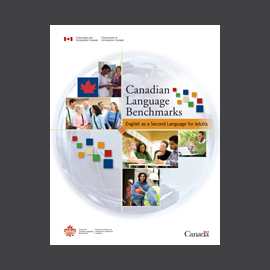
CLB Boot Camp
Come see the new and improved CLB Boot Camp and related online training modules. First developed in 2007, CCLB has recently updated the CLB Boot Camp, CLB for Lesson Planning and Integrating Assessment module with funding from the Ministry of Citizenship & Immigration of Ontario with advisory support funded by Citizenship & Immigration Canada.
This 10 hour self-study platform allows you to familiarize yourself with the CLB’s and their role with planning and assessment.
- Bootcamp: which provides an introduction to the Canadian Language Benchmarks (CLB) including the theoretical framework, the revised CLB document and the CLB for Literacy Learners document
- Using the CLB for Planning: which covers module planning and daily lesson planning
- Using the CLB for Assessment: which deals with ongoing learner assessment as well as an introduction to PBLA
To access the CLB Bootcamp:
- Go to learning.language.ca
- Create a user account
- Confirm your account by following the steps outlined in the system message sent to your email address
- Finalize the process by logging into the site
- Once logged in, you will see hyperlinks to three free courses
- Click on the course, enroll yourself and start!
CAN DO Statements
An easy tool that you can use are the CAN DO statements.
The Can Do statements will help you discuss with the learner what he or she can do and what needs to be learned.
They are good resources to:
- help the learner understand what they have already accomplished
- help you discuss goals and progress with the learner
You can download and print these for free. Click on the image below to view the various levels in the 4 different skills.
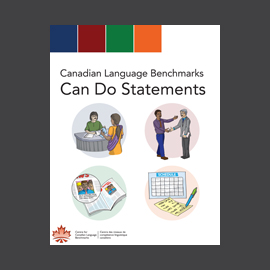
CLB Support Kit
The CLB Support Kit provides lots of information on using the CLB with learners. The kit includes checklists, templates, lesson ideas and exemplars of tasks at the different benchmarks. A really useful part of the kit is the video, audio and writing examples of learners at CLB 1-12. The kit provides reasons for why the learner is at that benchmark. Click on “Add to cart” and then complete the checkout form to download a free copy of the PDF. All of the video and audio samples are found on this page.

Lesson Plans
A selection of lesson plans are available for learners at levels CLB 1–8. These lessons are organized by theme, topic and CLB level and outline ideas for activities and tasks to help learners develop CLB competencies in all four skills. They can be found on the For Language Teachers page under the Lesson Plans tab.
Alternatively, you can also find “Language Learning for Health” lesson plans that cover a series of 8 healthy eating topics, each adapted to three levels of language competency – CLB1; CLB 2-3 and CLB 4-5 which were developed by Ottawa Public Health (OPH) and the Ottawa Carleton District School Board (OCDSB). These lesson plans can be used by anyone interested to incorporate public health content into language instruction. They are free for use and can be downloaded on the OLIP website under Knowledge Base / Toolkits: http://olip-plio.ca/knowledge-base/toolkit/
Literacy
You may suspect that the learner has literacy needs. You can use the CLB: ESL for ALL (Adult Literacy Learners) to help you plan some learning activities. This document contains the literacy benchmarks which connect the CLB. A free downloadable copy is available by clicking on the image below.
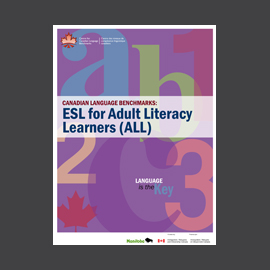

An Orientation to the CLB: ESL for ALL
The Alberta Government and the Centre for Canadian Language Benchmarks (CCLB) are pleased to announce the launch of the newonline course An Orientation to the CLB: ESL for ALL.
The course should be of particular interest to literacy instructors as well as those seeking a refresher on the CLB: ESL for ALL document.
An Orientation to the CLB: ESL for ALL is a 20-hour online, asynchronous training course based on Canadian Language Benchmarks: English as a Second Language for Adult Literacy Learners (ESL for ALL). This online course, developed in collaboration with Bow Valley College, will support instructors working with learners with literacy needs in a variety of classroom settings by:
- familiarizing participants with the contents of the CLB: ESL for ALL document
- offering suggestions on ways to use the resource to support planning for instruction
- providing strategies, teaching tips and best practices for working with ESL literacy learners
Please click here for more information on how to access this course.
Online self-assessment
You can help your learner assess his or her language level though an online self-assessment that will provide the benchmark stage that the learner is in.
Various Types of Assessment
Learners may be assessed by qualified assessors using:
- Canadian Language Benchmark Assessment (CLBA)
- Canadian Language Benchmarks Placement Test (CLBPT)
- Canadian Language Benchmarks Literacy Assessment (CLBLA)
- Literacy Placement Tools 1 and 2 (LPT 1 and LPT 2)
- Enhanced Language Training Placement Assessment (ELTPA)
- Workplace Language Assessment (WLA)
Here is a document explaining the National Assessment Framework.
If you want to help your learner understand his or her CLBPT results please see the For Language Learners page under the CLBPT Assessment Report tab.
Assessment Centres
All learners, including literacy learners can be assessed at an assessment centre that offers CLB aligned tests.
- Assessment centres that offer CLB-LPT, CLBPT and WLA can be found here
- Assessment centres that offer CLBLA, CLBA and ELTPA can be found here
Working in Canada
Are your learners preparing to work in Canada? Here are some tools to help them:
- Can Do Statements for Employment
- Work Ready is a collection of tools, checklists, case-studies, tips and practice exercises
- Visit our page For Employers, Counselors and Workers for additional resources
Additional Resources
For information related to provincial and territorial sites and programs and FREE access to more ESL/FSL resources, please visit:
Federal and provincial governments: http://www.tcet.com/nlass/cic-provincial-websites
Tutela is a repository of tools and resources: www.tutela.ca
Settlement.Org: http://eslcorner.settlement.org/
Find newcomer services near you: https://www.cic.gc.ca/english/newcomers/services/index.asp
Canadian Council for Refugees: https://ccrweb.ca/en/members
Programs/services by province:
Federal Government
- http://www.cic.gc.ca/english/refugees/welcome/index.asp
- http://www.cpa.ca/docs/File/Cultural/EN%20Syrian%20Population%20Profile.pdf
Across Canada- for families
Alberta
British Columbia
- http://refugeehub.issbc.org/
- https://www.welcomebc.ca/Start-Your-Life-in-B-C/Services-and-Support/For-Refugees
Manitoba
https://www.immigratemanitoba.com/refugee-resources/
New Brunswick
- https://www.welcomenb.ca/content/wel-bien/en/Promo/RefugeeSupport.html
- https://nbmc-cmnb.ca/imagine-nb-get-involved/
- https://www2.gnb.ca/content/wel-bien/en/LivingSettling/content/SettlementAgencies.html
Newfoundland and Labrador
Nova Scotia
- http://www.isans.ca/settlement/refugee-support/
- https://novascotiaimmigration.com/support-for-refugees/
Ontario
- http://www.health.gov.on.ca/en/pro/programs/emb/syrianrefugees/default.aspx
- http://www.welcomeontario.ca/
- https://www.ontario.ca/page/syrian-refugees-how-you-can-help
Prince Edward Island
Saskatchewan
Yukon
Frequently Asked Questions
Can anyone use the Canadian Language Benchmarks?
Yes, if the standards are used to support the assessment or training of adult immigrants to Canada.
How can I get trained on using the Canadian Language Benchmarks?
We suggest you start by completing Boot Camp at learning.language.ca. Many TESL training programs offer training on CLB or contact CCLB to learn about more courses.
How do I know what level my learner is?
The best way is to have the learner assessed using the CLBPT and/or the CLB-LPT. To find an assessment centre, click here. Your learner can also take the online self-assessment to practice their skills and get familiar with test formats. We also encourage you to discuss needs and progress with your learner using the CanDo statements.
Can I expect my learner to be the same CLB in all four skills?
Most learners have a jagged profile – meaning they are stronger in some skills than others.
What tools will be most helpful for me as I work with my learner?
Remember CLB is not a curriculum. There are some curriculi on tutela.ca that you can refer to. The CCLB’s Support Kit and other resources are available on language.ca
Where can I get additional help or information?
Contact info@language.ca for additional information or help.


